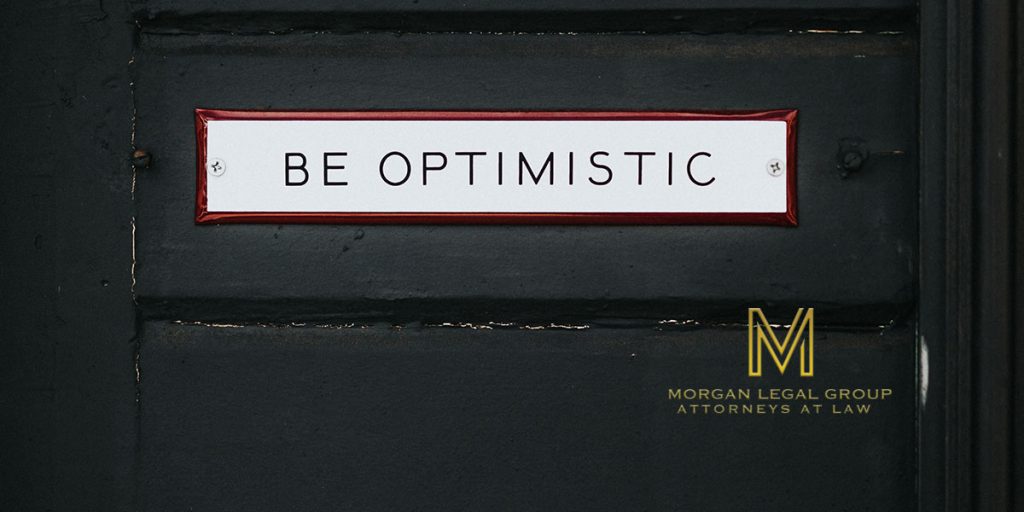Four Positive Outcomes of Estate Planning
Estate planning is a comprehensive process that goes beyond simply drafting a will. It is a crucial step in ensuring your wishes are respected, and your family’s future is secure. While many people associate estate planning with the distribution of assets after one’s passing, it offers a myriad of benefits that extend to both your lifetime and beyond.
At Morgan Legal Group, located in the heart of New York City, we understand the intricacies of estate planning and the positive outcomes it can bring to individuals and families. In this guide, we will explore four significant positive outcomes of estate planning, shedding light on why this process is essential for everyone.
1. Protecting Your Loved Ones
One of the primary positive outcomes of estate planning is the protection it provides to your loved ones. Through careful estate planning, you can ensure that your family members, dependents, and beneficiaries are financially secure, both during your lifetime and after your passing.
Estate planning allows you to:
- Designate Guardianship: If you have minor children, you can designate guardians who will take care of them in the event of your incapacity or passing. This crucial decision ensures that your children are in the hands of trusted individuals who can provide for their well-being.
- Minimize Tax Liabilities: Effective estate planning can help minimize estate taxes, allowing more of your assets to pass to your loved ones. This is particularly significant if you have a sizable estate.
- Ensure Smooth Asset Transfer: Your estate plan can specify how your assets should be distributed. This clarity minimizes the risk of disputes among beneficiaries and ensures that your assets reach the intended individuals or organizations.
By protecting your loved ones through estate planning, you provide them with financial security, peace of mind, and a clear roadmap for the future.
2. Managing Healthcare Decisions
Estate planning isn’t solely about finances; it also addresses your healthcare decisions. In the event of an unexpected medical crisis or incapacitation, your estate plan can include documents such as a Healthcare Proxy and an Advance Healthcare Directive.
These documents allow you to:
- Appoint a Healthcare Agent: A Healthcare Proxy lets you designate a trusted individual to make medical decisions on your behalf if you’re unable to do so. This ensures that your medical care aligns with your preferences and values.
- Specify Medical Preferences: An Advance Healthcare Directive allows you to outline your medical preferences and end-of-life decisions. This ensures that your healthcare team understands your wishes, reducing the burden on your family during challenging times.
Estate planning empowers you to take control of your healthcare decisions, ensuring that you receive the care you desire and relieving your loved ones from making difficult choices in the absence of your guidance.
3. Preserving Your Legacy
Your legacy extends far beyond your material possessions. It encompasses your values, principles, and the impact you’ve had on the world. Estate planning allows you to preserve and pass on this intangible legacy to future generations.
Ways in which estate planning preserves your legacy include:
- Charitable Giving: You can designate a portion of your estate for charitable organizations that reflect your values. This act of philanthropy allows you to make a positive impact on causes that matter to you.
- Family Business Succession: If you own a family business, estate planning can facilitate a smooth transition to the next generation, preserving your family’s entrepreneurial legacy.
- Educational and Support Trusts: Establishing trusts for the education and support of future generations ensures that your family members have opportunities to succeed and thrive.
By incorporating these elements into your estate plan, you ensure that your legacy endures, leaving a lasting impact on the lives of your loved ones and the causes you hold dear.
4. Asset Protection and Wealth Transfer
Effective estate planning offers asset protection during your lifetime and facilitates the seamless transfer of wealth to your beneficiaries. It allows you to make informed decisions about asset distribution, considering factors such as taxes and potential creditors.
Key elements of asset protection and wealth transfer in estate planning include:
- Trusts: Trusts are versatile tools that can protect your assets from potential creditors and offer tax benefits. They also enable you to specify how and when your beneficiaries receive their inheritances.
- Power of Attorney: A Power of Attorney allows you to appoint someone to manage your financial affairs in the event of your incapacity. This safeguards your interests and ensures financial continuity.
- Estate Tax Planning: Effective estate planning can minimize estate taxes, allowing more of your wealth to pass to your beneficiaries.
By incorporating these strategies into your estate plan, you can protect your assets during your lifetime and facilitate a smooth transfer of wealth to your loved ones, all while minimizing financial burdens.
Consult with Morgan Legal Group
At Morgan Legal Group, we believe that estate planning is a powerful tool that can bring numerous positive outcomes to individuals and families. Our experienced estate planning attorneys in New York City are dedicated to guiding you through the estate planning process and helping you achieve your financial and personal goals.
Whether you are looking to protect your loved ones, manage healthcare decisions, preserve your legacy, or safeguard your assets, we are here to provide expert assistance. Our services include:
- Estate Plan Development
- Asset Protection
- Healthcare Directives
- Power of Attorney
- Family Business Succession Planning
Take the first step toward securing your family’s future and experiencing the positive outcomes of estate planning. Consult with Morgan Legal Group today.











